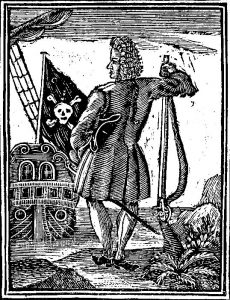Late Colonial (1715–1763)

Library of Congress
The Late Colonial period is defined by the movement of various groups of Europeans into North Carolina, slowly filling out the area that would later become the modern-day state. This includes groups like Welsh immigrants moving from Pennsylvania, Highland and Lowland Scots and Scots-Irish immigrating into the Cape Fear area, and people of German descent who moved into the present-day Winston-Salem area. The beginning of the period also includes the “Golden Age of Piracy,” when notable pirates like Stede Bonnet (the “Gentleman Pirate”) and Blackbeard operated. As with the Early Colonial, the end of the Late Colonial is marked by a large conflict; in this case, the French and Indian War, which lasted from 1754 to 1763. While this war encompassed the entire East Coast, the Carolinas were embroiled in conflict initially with the Shawnee and later with the Cherokee. At least in the Carolinas, the war effectively ended in 1761, when a treaty was signed as a result of the combined efforts of North Carolina and Virginia troops and warriors from the Catawba and Chickasaw nations. The official end of the war was in 1763, when the Treaty of Paris was signed.
